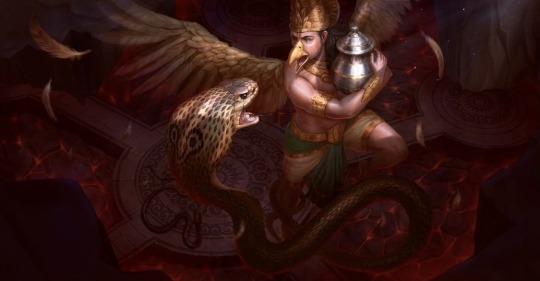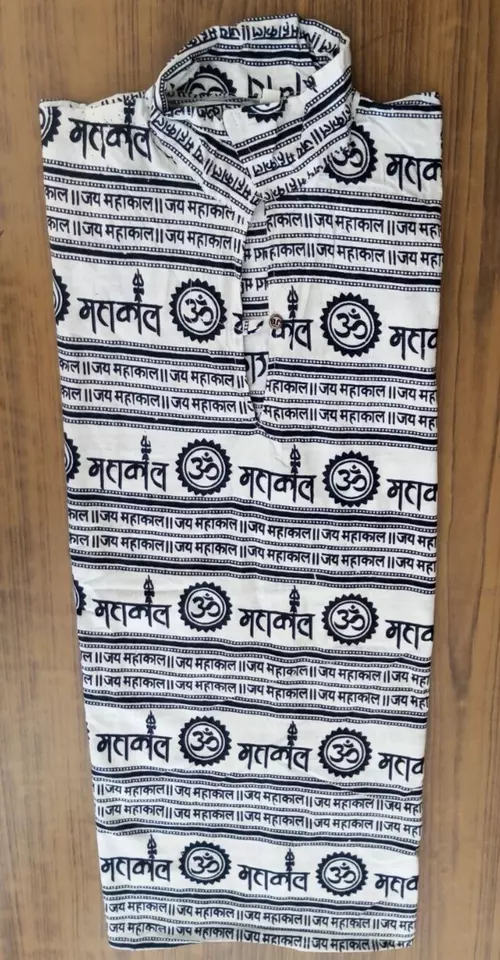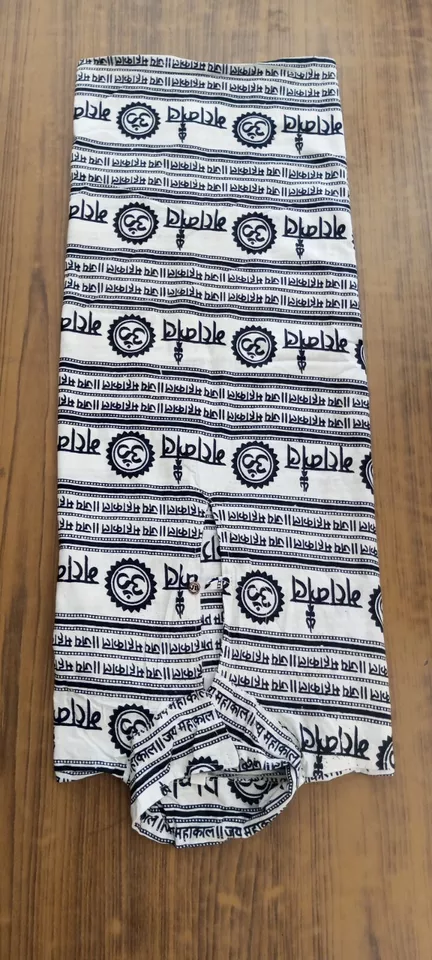#Hindu Religion
Explore tagged Tumblr posts
Text

The avatar Narasimha, ca. 1870s
Via: https://www.metmuseum.org/art/collection/search/857030
120 notes
·
View notes
Text

Kali
#Goddess Kali#Kali#Shiva#Ink on paper#Kohler Foundation#Kalighat#hindu religion#indian art#hindu mythology#art#hindu god#hinduism
122 notes
·
View notes
Text
I think I need to make it clear for many Vaishnav (looking especially at you, ISKON) Hindu extremists (and even many Shaivites) that ya'll can have your sects and your beliefs as Vishnu or Shiva as your supreme lords. I don't have an issue with that.
But when you try to say that this is the ONLY truth about the Vedic religion (I'm not using Hinduism here because it doesn't sum up the pantheon as much as the ''Vedic" word does, despite the term being associated with the Vedas, and yes we need to come up with a better word that comprises this entire pantheon as a whole), that's when I have a problem, because that is definitely NOT the entire pantheon.
Do not spread the beliefs of your sect as the ONLY canon belief and don't speak for the people who don't fall under this category. I have seen this in all of social media and it pains me how much of a linear pantheon this once oh-so flexible culture has become.
Yes the concept of Prajapati and the Supreme being has existed since the Vedas. But when you say that Vishnu and Shiva are somehow superior to other gods as the ONLY CANONICAL BELIEF, that just flips me off, and I'm gonna call it out.
How dare you forget the four Vedas, that had no mention of such an idea? This might tick some people off but Indra, Agni, Rudra (which later became synonymous with Shiva, but is a whole different deity), Mitra, Varuna, Vayu and a few other Gods were just as much powerful as Vishnu or Shiva, if not more. This is ANOTHER canonical truth that these extremists (again, somehow mostly Vaishnav) are denying.
Ancient pantheons weren't some linear path with just one canon event. These were their own multiverses of a plethora of VARIOUS canon events, myths and legends. So stop making the Vedic religion a linear, rigid pantheon. Remember? It's not an organized religion. There can be SEVERAL canonical truths. Like I definitely understand that a religion/culture changes overtime. It evolves. Fine. Vishnu is the supreme God now, fine. But you can't deny the history. The Vedas that didn't canonize this. Are you gonna say that these Vedas, that came BEFORE this Vishnu/Shiva being the considered the supreme lord(s), were wrong? I hope not lol.
Besides, I'm not even gonna get into ISKON. They have regarded anyone that's not Vishnu as a demigod, which is ABSOLUTELY VILE AND DISRESPECTFUL. Do they even KNOW what a demigod is??? FUCK NO. They don't. They just like to use that word to inferiorize other deities, due to their unhealthy and toxic obsession with Vishnu, who doesn't deserve it. On top of that they have claimed that worshipping such gods will not lead you to eternal peace, or that it's somehow wrong. Ah yes. Gotta love gatekeeping and toxic cult fan behavior. Call me rude but if you disrespect a GOD (yes, Indra, Mitra, Varuna and others are ALSO GODS, FYI) is WILD, and they should be called out for it. (Some Shaivites have done the same in case of Shiva, and they need to be similarly called out.)
In conclusion, worship whoever tf you want, but remember that theologically, and even historically, there can be more than one canonical story. It really depends on which sect/region you belong to. You CAN be a polytheist. Idk why Hindus these days are inadvertently trying to appeal to the monotheistic pantheons so much, to the point that they have an internal dislike for polytheism, which they're not aware of, but it shows when they speak up.
This pantheon (like every other pagan pantheon back in the day) is very broad. Remember that. And it's very flexible. So let it be like that, and stop gatekeeping it and having a war between who supreme Lord is. I'll stop my yapping here. But I hope people understand this. Cuz damn.
#Im sorry but this needed to be addressed#this whole thing has had been a pain in my ass#anyways#hindu mythology#hinduism#hindu myths#hindu gods#vishnu#shiva#desiblr#hindu#hindublr#paganblr#paganism#desi tumblr#vedic culture#vedic mythology#vedic literature#hindu religion
124 notes
·
View notes
Text

Vasuki and Garuda
#hindu#hinduism#spirituality#temple#shiva#hindu mythology#lordshiva#parvati#kailasa#krishna#sanathanadharma#garuda#nagasaki#naga#vasuki#snakebites#eagles#hindu religion#snakes
45 notes
·
View notes
Text


#india#temple#asia#photography#vsco#vscocam#hindublr#hinduism#hindu mythology#hindustan#hindu religion#swaminarayan
3 notes
·
View notes
Text
do hindus of tumblr want to share links that will help me learn about the history of culture and religion, etc.? also i wouldn't mind if some of you would explain the term "hindutva" to me and story behind it
6 notes
·
View notes
Text
South-Indian images of gods and goddesses.
Description
Tools
Cite this
Main AuthorKrishna Sastri, H. (Hosakote)Language(s)English PublishedMadras : Government press, 1916. SubjectsSculpture > Sculpture / India. Hindu mythology. India > India / Religion. Physical Descriptionxiii p., 1 l., 292 p. : incl. front., illus. ; 25 cm
1 note
·
View note
Text
ये सरकार के मुँह पर तमाचा है -
ये सरकार के मुँह पर तमाचा है – कथित हिन्दू ये हमारा कुंभ है तुम्हारा क्या काम है बनाम मुस्लिम —राजकुमार अग्रवाल /अटल हिन्द – भारत जैसे धर्मनिरपेक्ष देश में साम्प्रदियकता दंगों को बढ़ावा देने और भारत की जनता के सामने 2014 के बाद सबसे ज्यादा झूठ बोलने और झूठे आंकड़े पेश करने वाली (कथित हिन्दू सरकार ) बीजेपी सरकार और भारत में बीजेपी सत्तारूढ़ प्रदेशों के कथित हिंदू ठेकेदारों की सभी सोच और कार्यशैली…
#Hindu religion#prayagraj#hindu#Maha Kumbh massacre#mahakumbh#MAHAKUMBH MELA 2025#this is our Kumbh#UTTARPRADESH
0 notes
Text





MAHAKAL KURTA COTTON MEN/WOMEN BANARAS HINDU POOJA RELIGIOUS FASHION BOHEMIAN
https://www.ebay.com/itm/286283381272
0 notes
Text
Om (Aum): The Sacred Chant of Hindu Religion
Om or Aum, a venerable symbol in Hindu spirituality, holds deep significance as a cosmic resonance and a transformative mantra. Embraced globally, Om / Aum is intrinsic to the spiritual and cultural fabric of Hinduism, tracing its roots to ancient Indian scriptures such as the Upanishads and the Bhagavad Gita. Read more at: OM: The sacred symbol of cosmic reality in Hindu religion.




1 note
·
View note
Text

Lord Balaji by Giampaolo Tomassetti
#Lord Balaji#Balaji#Giampaolo Tomassetti#Tomassetti#Vishnu#hinduism#hindu god#hindu religion#hindu mythology#supreme god#Venkateswara#Govinda#Tirupati#Sheshanaga#Shesha#Tirupati Timmappa#Thimmappa#Vishnu Avatar
23 notes
·
View notes
Text
8 notes
·
View notes
Text

Eshwara
#hindu#hinduism#spirituality#temple#shiva#hindu mythology#lordshiva#parvati#kailasa#krishna#hindu religion#hindu art#sanathanadharma#mahadev#har har mahadev#mahakal#mahakaal#rudra#lord shiva#om namah shivay#shivaya
51 notes
·
View notes
Text
#book review#book reviewer#book blogging#book bloggers#hindu religion#hindu religious books#religious books#childrens books
0 notes
Text
Pitru Paksha or Shraddh Paksha is a Unique Ritual in Hindu Religion to Honour Ancestors
Pitru Paksha, or Shraadh Paksha, is a unique and very special ritual of Hindu religion that is going to start on 17th September and end on 2nd October 2024. There is only one religion in the world that gives importance to the ancestors (Pitru) by conducting a ritual for 16 days to honour and pay homage in remembrance of their contribution in our lives....Expand to know more
#Pitru Paksha#Shraddh Paksha#Hindu Religion#Honour Ancestors#ancestor history and blessing#Forefather blessings#Old soul#departed soul#living soul
1 note
·
View note
Text
Shri Vishnu Chalisa Meaning and Interpretation
श्री विष्णु चालीसा लिरिक्स हिंदी में ।।दोहा।। विष्णु सुनिए विनय सेवक की चितलाय । कीरत कुछ वर्णन करूं दीजै ज्ञान बताय ॥ ।।चौपाई।। नमो विष्णु भगवान खरारी । कष्ट नशावन अखिल बिहारी ।।1 प्रबल जगत में शक्ति तुम्हारी । त्रिभुवन फैल रही उजियारी ।।2 सुन्दर रूप मनोहर सूरत । सरल स्वभाव मोहनी मूरत ।।3 तन पर पीताम्बर अति सोहत । बैजन्ती माला मन मोहत ॥4॥ शंख चक्र कर गदा बिराजे । देखत दैत्य असुर दल भाजे …

View On WordPress
#devotional hymns#divine blessings#Hindi devotion#Hindu devotional songs#Hindu religion#Lord Vishnu#religious texts#Shri Vishnu Chalisa#Vishnu Chalisa in Hindi#Vishnu Chalisa meaning#Vishnu prayers#Vishnu worship
0 notes